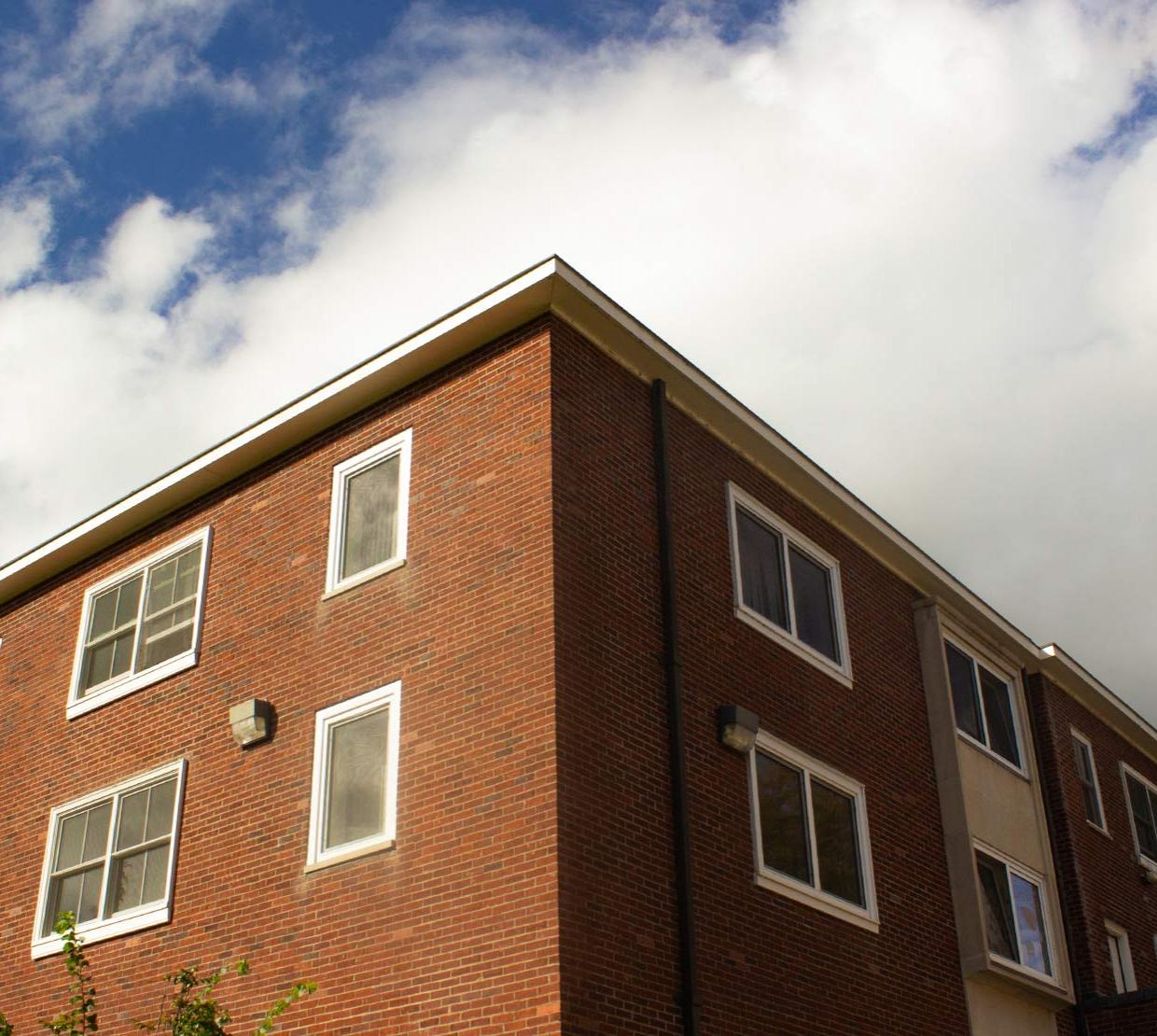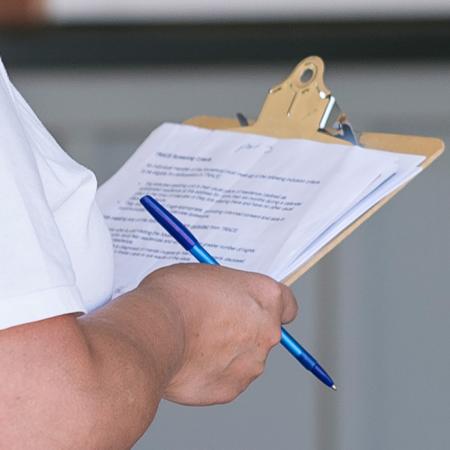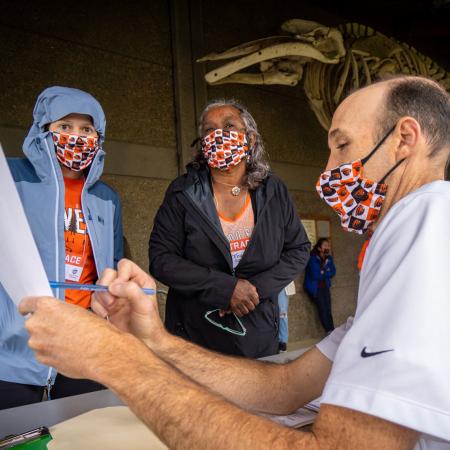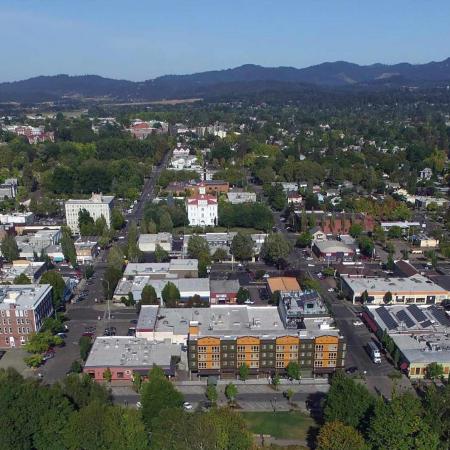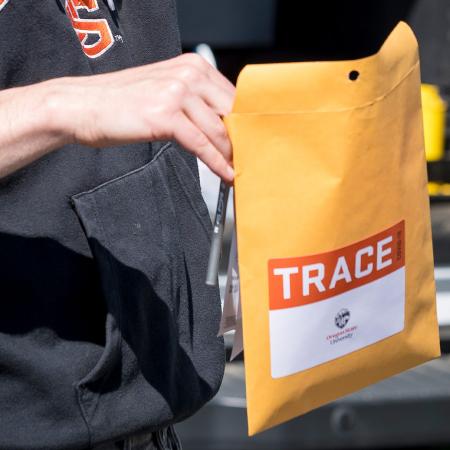CORVALLIS, Ore. – TRACE OSU’s wastewater investigators have detected moderate genetic signals of the virus that causes COVID-19 in sewer outflows from a residence hall on the west side of Oregon State University’s Corvallis campus and a privately owned apartment building just north of campus.
In response to the presence of SARS-CoV-2 in sewage from Sackett Hall, 2901 SW Jefferson Way, and the OSU-affiliated GEM apartments, 155 NW Kings Blvd., the TRACE team began rapid response diagnostic testing today to determine if students living in those buildings carry the virus.
Testing of these students will continue through 5 p.m. Thursday. It will be done using the PCR-based system (TaqPath COVID-19 Combo Kit from ThermoFisher), which is the most accurate test currently available for the virus, and is the test used by all TRACE work to date.
“These wastewater results are an early indicator and prompt us to investigate further, which we already are prepared to do with rapid targeted diagnostic testing of possibly affected OSU community members,” said Dan Larson, vice provost for student affairs and OSU’s COVID-19 response coordinator. “We also are prepared to support contact tracing with Benton County; provide on-campus isolation and quarantine, as advised; provide student support services; and continue weekly TRACE OSU sampling and wastewater analysis.
“Today’s diagnostic testing is being done out of an abundance of caution.”
Tyler Radniecki, OSU associate professor in the School of Chemical, Biological and Environmental Engineering and a TRACE co-principal investigator, said that the campus-wide wastewater testing as of Sept. 27 detected the presence of the virus only in those two residences and the Corvallis campus residence hall that is a dorm reserved exclusively for isolating students who have tested positive for COVID-19.
“Students living in Sackett Hall and the GEM were notified this morning by email from TRACE OSU to their OSU email,” said Ben Dalziel, TRACE director and assistant professor in OSU’s College of Science. “Occurrences such as this are not cause for panic but rather simply illustrate the reason we have TRACE OSU in place.”
Larson said students living in Sackett Hall and the GEM have the option of being tested or quarantining for 14 days. Sackett students could quarantine in a university residence hall designated for COVID-19 isolation/quarantine or at home; GEM students could quarantine in a single room at the GEM or at home.
Each week, TRACE OSU conducts routine, random COVID-19 testing of up to 1,000 faculty, staff and students and wastewater analysis to monitor the presence of the virus at Oregon State’s campuses in Corvallis and Bend and at the Hatfield Marine Science Center in Newport.
“We are not able to estimate the number of individual cases from wastewater analysis of a specific building,” Radniecki said. “By way of background, similar levels of the virus were seen in Corvallis community wastewater the third week of July. Those signals have since subsided.”
As students wait for their test results, Oregon State is asking them to exercise extra caution as they practice public health measures including physical and social distancing, hand-washing, self-screening for symptoms, isolating if they are not feeling well, avoiding unnecessary interactions with others and wearing face coverings.
“These same public health measures should be part of each of our daily routines,” Larson said.
If anyone has any symptoms or is not feeling well, he added, they should contact their primary care provider or students can call the Student Health Services Nurse Advice Line at 541-737-2724, or call 541-737-9355 for an appointment.
TRACE OSU is an extension of the TRACE-COVID-19 public health project that began in April with door-to-door sampling in Corvallis and later expanded to Newport, Bend and Hermiston and to include wastewater monitoring. The work helps determine community prevalence of the virus behind COVID-19.
“The number of people who are infected in a population provides a leading indicator of how fast the number of cases will grow if not contained,” Dalziel said. “Knowing prevalence helps determine what types of public health measures are required at a particular time.”
With TRACE OSU, being tested for the novel coronavirus is voluntary but encouraged by the university. All current students, staff and faculty residing in the Corvallis, Bend and the Newport areas are invited to register for possible testing by enrolling here.
This story was originally posted by the Oregon State University newsroom.
